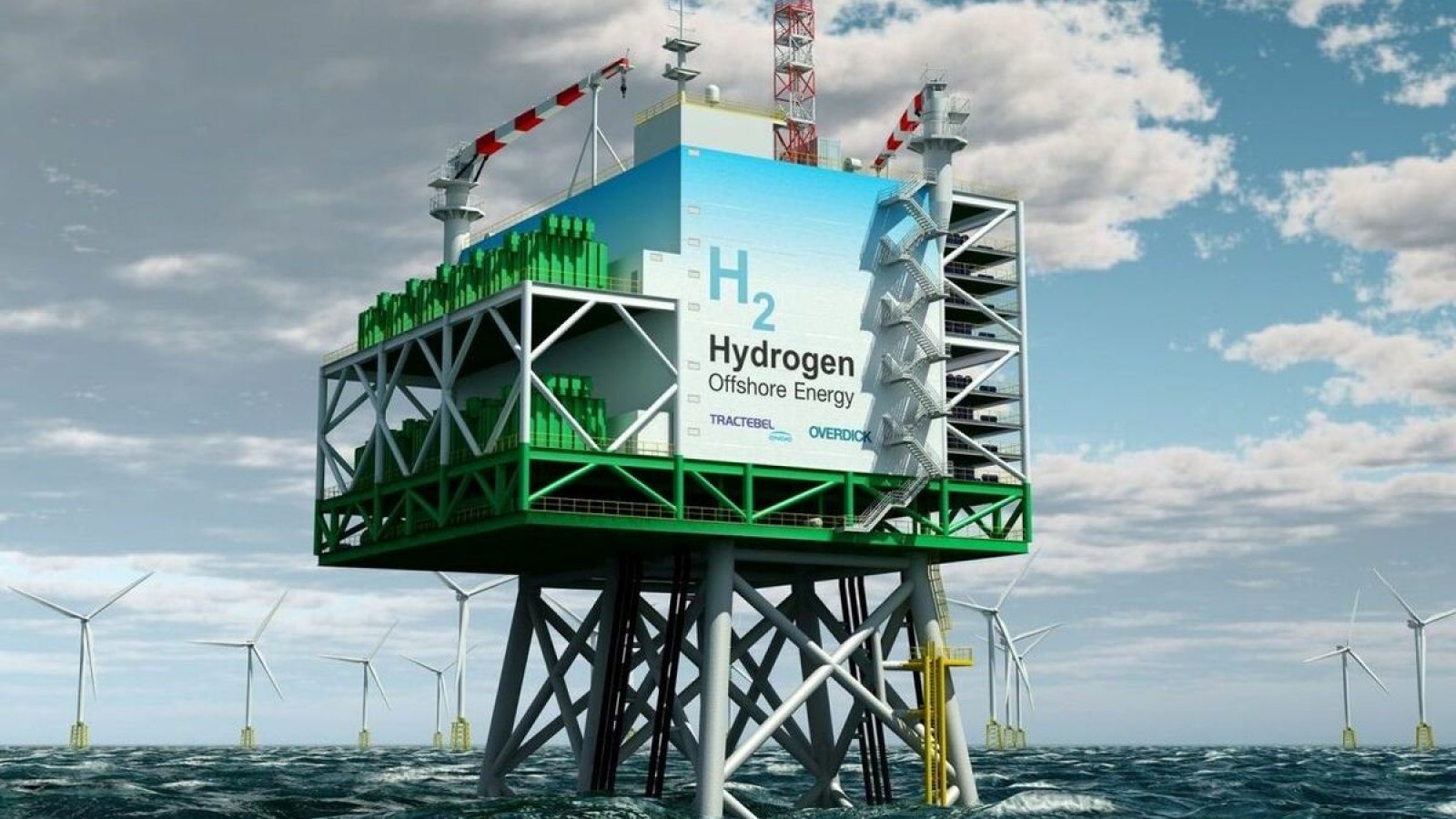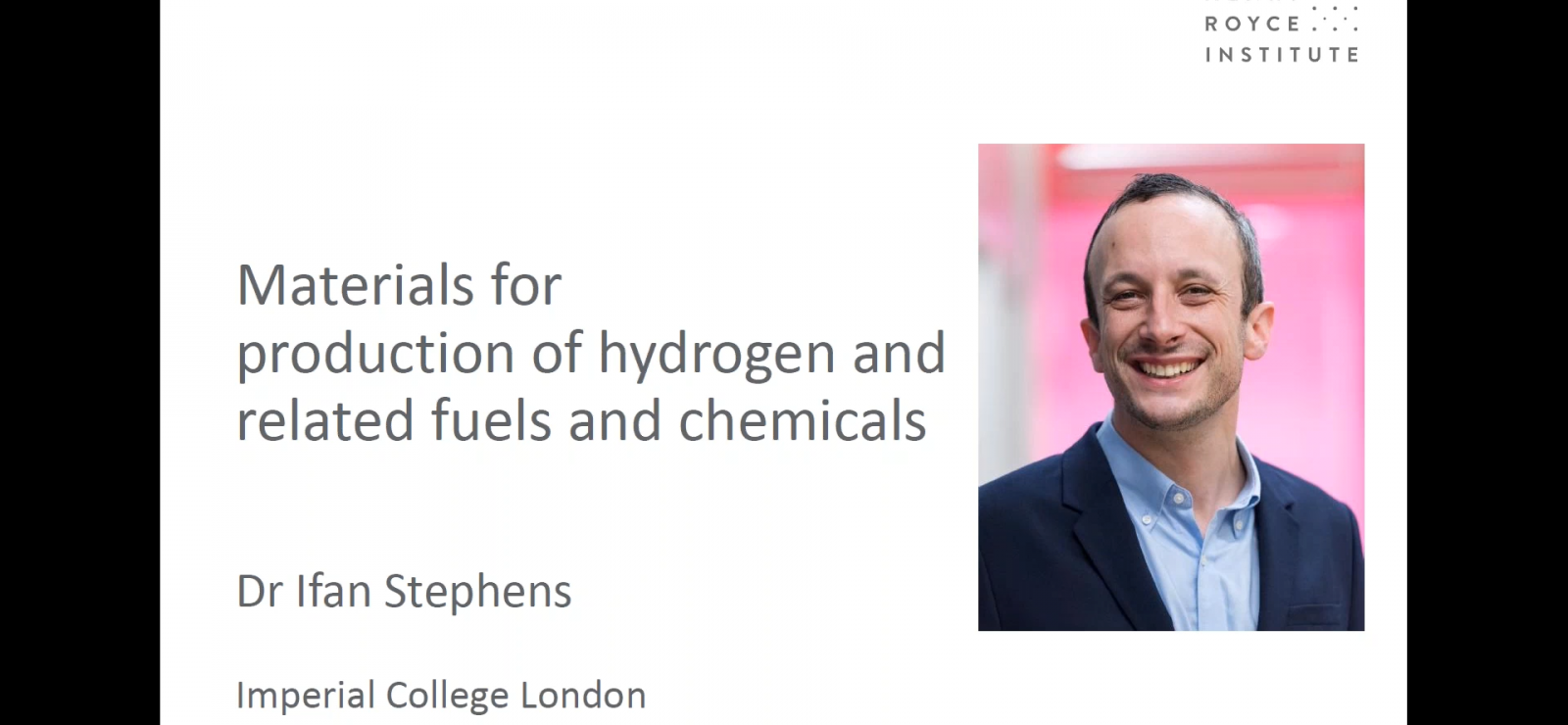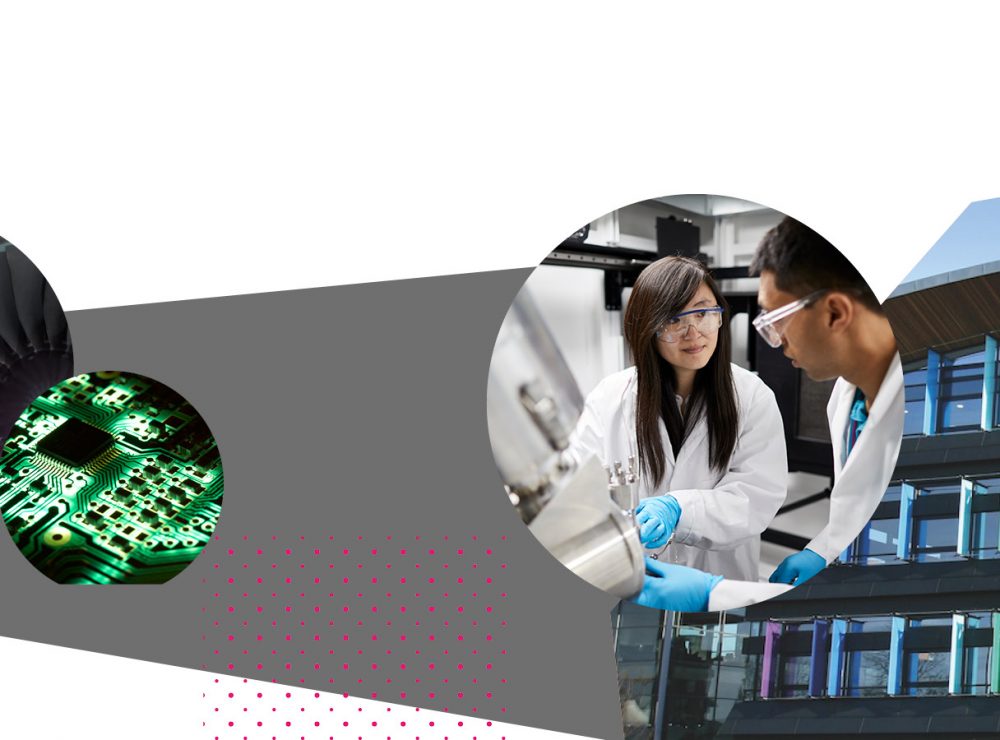This website uses cookies so that we can provide you with the best user experience possible. Cookie information is stored in your browser and performs functions such as recognising you when you return to our website and helping our team to understand which sections of the website you find most interesting and useful.

Materials for Low-Carbon Production of Hydrogen and Related Energy Carriers and Chemical Feedstocks
Materials for the Energy Transition roadmaps
As part of the ongoing Materials for the Energy Transition roadmapping process, the Henry Royce Institute in collaboration with the Institute of Physics have brought together UK experts from academia and industry to explore how materials science can contribute to the 2050 net-zero-carbon targets.
The Materials for Low-Carbon Production of Hydrogen and Related Energy Carriers and Chemical Feedstocks roadmap sets out the priorities, targets and enablers which have been identified by UK research communities to help to achieve efficient, durable and sustainable hydrogen production, which is scalable to the terawatt level for the UK and globally, with a net-zero carbon footprint. The UK has a globally-leading position in low TRL early-stage materials research in this area, however this is not currently exploited towards the deployment of hydrogen as a viable energy source at scale. Further co-ordinated and targeted support will help the UK’s ambition for its net-zero aims by building a robust efficient and sustainable hydrogen industry. Harnessing the UK’s early-stage research base in development of catalysts for petrochemical-free hydrogen production will provide the UK with economic potential for exporting technology, as well as develop new UK markets.
There is a significant opportunity within the UK for investing in green hydrogen technologies owing to the UK having one of the largest renewable electricity generating capabilities in Western Europe. For the UK to capitalise on this opportunity, support is required in terms of regulation frameworks and incentives for industry. Furthermore, due to the multidisciplinary nature of the field, integration of the different research activities and early engagement with industry are essential for accelerating commercialisation of technology. Hydrogen generation requires a range of cross-sector skills and knowledge, including modelling, surface science, process engineering, and utility-scale operations.
If you would like to cite this document, please use the following text:
Stephens, I.E.L, Athanassopoulou, N., ‘Materials for the Energy Transition roadmap: Materials for Low-Carbon Production of Hydrogen and Related Energy Carriers and Chemical Feedstocks’, Henry Royce Institute, September 2020 https://www.royce.ac.uk/content/uploads/2020/09/M4ET-Materials-for-low-carbon-production-of-hydrogen-and-related-energy-carriers-and-chemical-feedstocks-.pdf
Materials for the Energy Transition Roadmaps
Materials for Photovoltaic Systems
Thermoelectric Energy Conversion Materials
Useful links

“Large scale electrolytic hydrogen production by splitting water would allow us to store the surplus of energy that we could potentially harvest from the UK’s huge offshore wind resource. Hydrogen could allow us to remove the emissions from the areas most challenging to decarbonise, such as heating, the chemical industry and steelmaking. Such progress is contingent on longer lasting, more efficient materials for catalysts, electrode materials and electrolytes. Moreover, we need materials that allow the sustainable production of related energy carriers, such as ammonia or ethylene, at low temperatures and pressures. The UK already has leading companies in the production of materials for electrolysers and fuel cells, such as Johnson Matthey, ITM Power and Ceres Power. During the workshops, we identified that we need greater integration between academia and industry to capitalise on our strengths in materials for hydrogen. In particular, we need improved facilities and routes for academic laboratories to test new materials under industrially relevant conditions. Should the UK capitalise on our potential, then we could become a huge exporter of hydrogen related technology, spearheading the global move to a net-zero emissions society.”
Dr Ifan Stephens | Reader in Electrochemistry | Imperial College London | Theme Lead for Low-Carbon Production of Hydrogen and Related Energy Carriers and Chemical Feedstocks
Materials for the Energy Transition Roadmap Webinar
Click here to view presentation from Dr Ifan Stephens (Imperial College London) on the key findings from the Materials for the Energy Transition roadmapping for Materials for Low-Carbon Production of Hydrogen and Related Energy Carriers and Chemical Feedstocks.
This presentation was part of the Materials for the Energy Transition Roadmap Webinar held by the Henry Roye Institute and the Institute of Physics on 15 June 2020. The full webinar recording can be viewed here.




